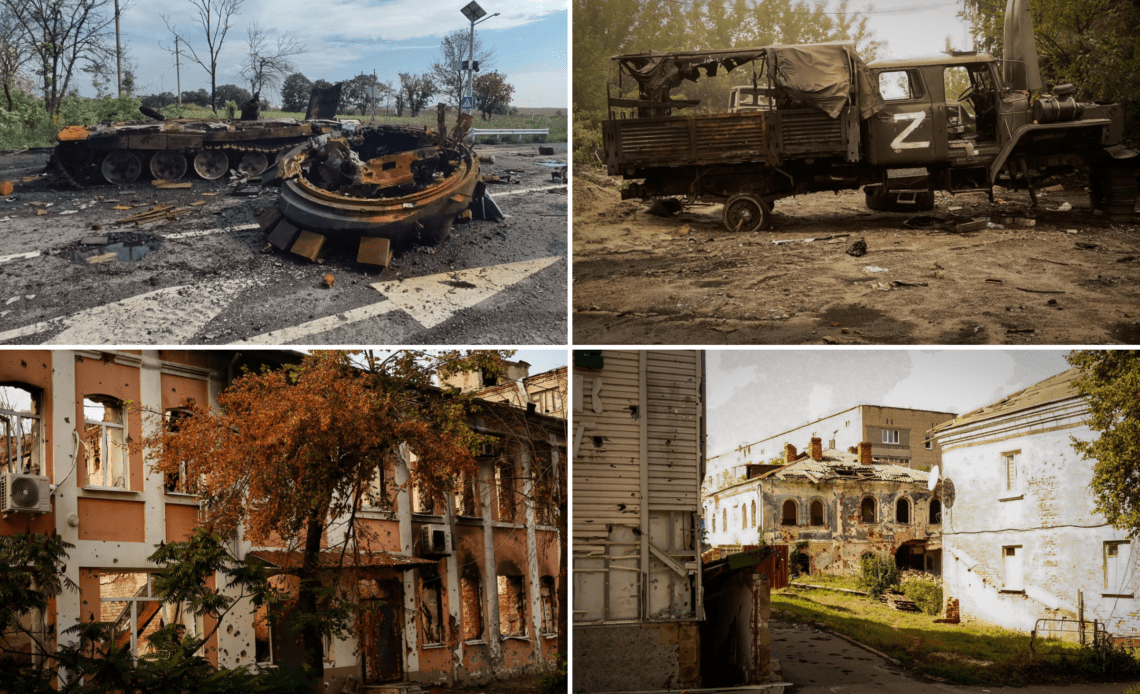Survivors of Russian occupation in eastern Ukraine have spoken to Newsweek of the traumas they faced, as local authorities begin rebuilding and restoring local services in dozens of ruined settlements freed by the recent Ukrainian advance.
Ukrainian troops have freed more than 6,000 square kilometers (2,316 square miles) of occupied territory since early September, inflicting another defeat on President Vladimir Putin‘s forces. Kyiv’s troops are continuing their drives in the east and south as Russian authorities seek to cement their control with controversial referendums that have been dismissed as a “sham” by the United States.
Ukrainian advances around the country have reportedly found significant evidence of Russian war crimes and other abuses, which have been denied by Moscow. Leaders in Kyiv say they expect to find more as troops liberate more territory. In liberated Kharkiv Oblast, the stories of survivors offer a glimpse of what is happening across occupied Ukraine.
The city of Izyum, in Kharkiv Oblast—captured by Russian units at the end of March—was a key objective of the Ukrainian offensive. Local resident Illia Puntusov—a 26 year-old PhD student and filmmaker—told Newsweek that the “purges” began immediately after Russia took control of the city.
“They were looking for troops, and prioritized those who had experience in the ATO,” he said, referring to what Kyiv termed the Anti-Terrorist Operation Zone where fighting against Russian and separatist forces has been ongoing since 2014.
Checkpoints were set up to police the male population, he said, searching for any signs of pro-Ukraine ideology, including tattoos. Puntusov, who has a “Scandinavian sleeve” tattoo which included symbols associated with the Azov Regiment, said he was lucky to escape arrest.
The Russians also searched Puntusov’s phone, through which he had been leading a community group and reporting on events from the city. Luckily, he said, the soldiers did not find the content he had been collecting.
The ‘imperial boot’
Puntusov said he was aware of abuses against the local population. Some 440 fresh graves dug during the occupation have been found in the city, and many residents—including children—are still missing. Newsweek has contacted the Russian Foreign Ministry for comment.
Order broke down as local guerrillas took up arms and residents struggled to access vital supplies, he recalled.
“During the first six weeks of the war, not a single humanitarian shipment entered…
Click Here to Read the Full Original Article at Newsweek…

